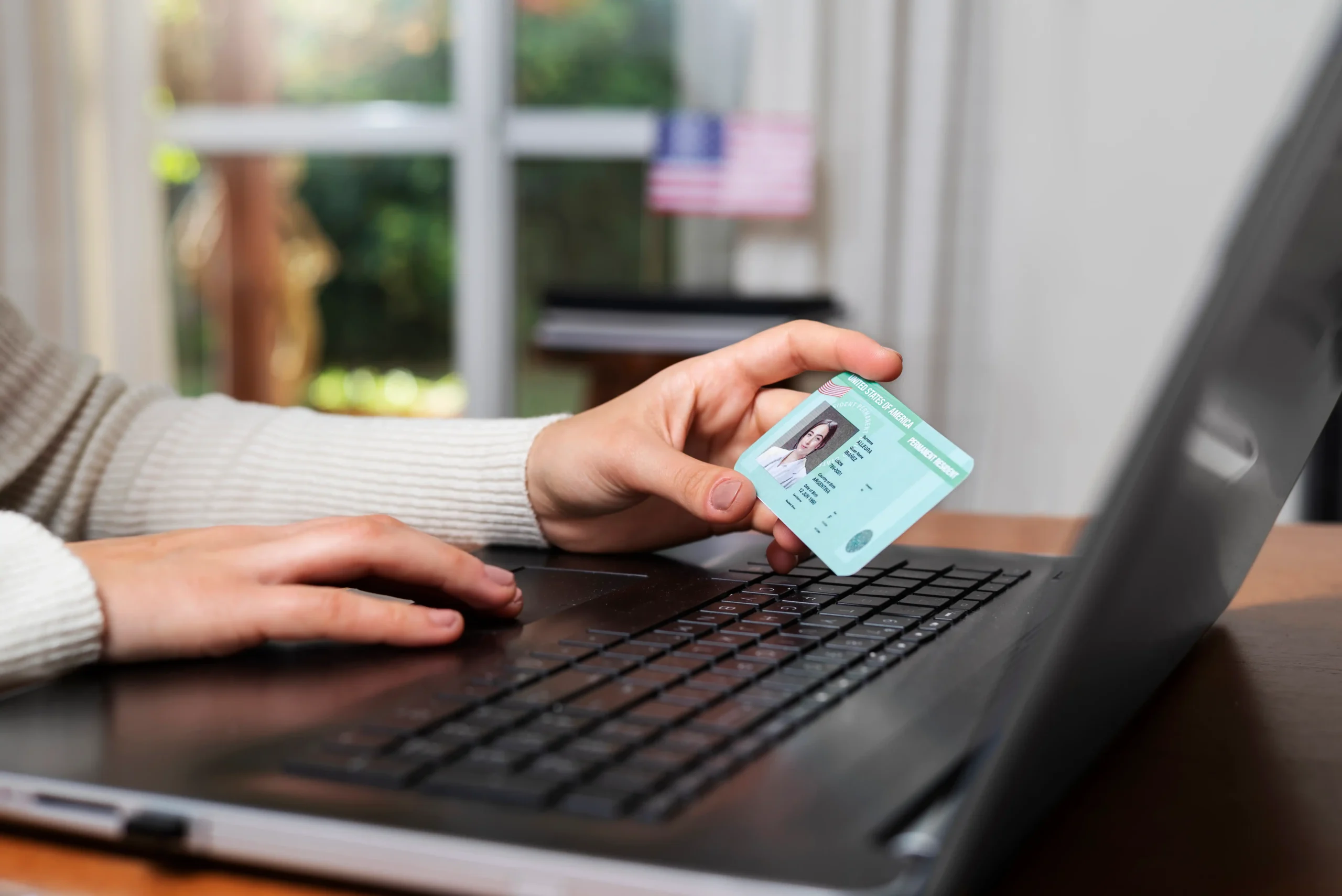Have you been warned that your Facebook page can be deleted? If so, you’re not alone. Many users have received notifications or alerts and are unsure if they’re real threats or just a Facebook deletion scam.
According to a report by Security.org, concerns over privacy and security have grown so strong that over one in three Americans are considering deleting their Facebook accounts immediately. But before you do anything, it’s important to know if these warnings are legitimate or not. Keep reading to find out!
Need support after a scam? Join our community today.
What is Facebook Deletion Scam?
Facebook deletion scam is a fraudulent tactic used by cybercriminals to trick people into giving up their Facebook accounts or personal information. They create a sense of fear and urgency, often sending messages to manipulate users and gain their trust in the platform, like:
- Your Facebook page will be permanently deleted.
- Facebook guest message page deletion.
Initially, these scams appeared as messages posted to the Facebook page area, but recently they have since spread to include emails and other forms of communication.
How the Facebook Deletion Scam Works?
The Facebook deletion scam uses a series of tricks to get users to give up their accounts. Here’s how this scam typically works:
1. Impersonation
By acting as official representatives, scammers convince users to share sensitive information or request access to their accounts. For example, you might receive a message from someone claiming to be from Facebook’s Security Team, asking for your password to verify your account.
2. Fake Warnings
Scammers often use fear and urgency by sending fake alerts that claim your Facebook page is at risk of being deleted. These messages typically claim that immediate action is required to prevent this. Common types of fake warnings include:
- Account Deletion Threats: Notifications claiming your page is scheduled for deletion due to violations of community guidelines or suspicious activities. These messages typically urge you to take immediate action to save your page.
- Urgent Alerts: Messages that create a sense of urgency, suggesting your account is at risk and requires immediate intervention. These usually involve instructions to click a link or follow specific steps.
3. Phishing and Malicious Links
They frequently use phishing links to send users to fake websites. For example, a link that looks like Facebook Support leads to a fake login page. Users might also be asked to click a link or download a file for account verification or protection, which can install malware or steal personal information.
4. Manipulative Language
Scammers use emotional or threatening language to pressure users into taking action. They might warn that not complying with their instructions will lead to permanent account suspension or loss of sensitive data. For example, they could say:
- Your account has been flagged for deletion. Click here to appeal.
- Failure to respond within 24 hours will result in the permanent loss of your page and data.
Facebook offers custom reporting systems to help users identify and report potential scams, guaranteeing the safety and security of everyone on the platform.
Discover how to protect yourself by exploring fraud detection techniques appropriate to different scenarios.
How to Know if a Facebook Page Deletion Alert Is Real?
Figuring out if a Facebook page deletion notice is real or a scam takes some careful checking. Here are three ways to tell if a Facebook page deletion notice is authentic:
1. Official Facebook Communications
Facebook often sends important updates and notifications through official channels. For page deletion notices, Facebook usually contacts the page owner or administrator directly.
These messages are typically sent through the Facebook Page Support Inbox or the email linked to the page. If you receive a deletion notice, make sure to check for official messages from Facebook.
2. Verified Sources and News Reports
A good way to confirm the legitimacy of a Facebook page deletion is by checking verified sources and news reports. Major news sites and well-known tech websites often cover these events, giving legitimate and verifiable information.
Do a quick search using credible sources, like the CDN blog, to see if there are any reports or articles out there about the specific page deletion.
3. Reviewing the Page’s Activity
Legitimate pages typically show regular activity and content updates. Check for recent posts, comments, likes, and interactions with followers. If your page is actively managed and has a strong online presence, it’s less likely to be at risk of deletion.
However, if the page has been inactive for a long time or lacks recent posts, it might indicate that the deletion notice is genuine.
Have questions about dealing with scams?
Best Practices to Prevent Facebook Deletion Scams
Protecting your online presence, especially on platforms like Facebook, is important. With so many users on Facebook, it’s necessary to keep your account safe from possible scams and threats. Here are some best practices to start protecting yourself from scams on Facebook:
1. Use Facebook Protect
Facebook Protect is a feature designed to provide an extra layer of security for your account and personal information. This service is particularly useful for public figures such as politicians and celebrities, who are often targeted by cybercriminals.
Signing up for Facebook Protect can help prevent unauthorized access and provide peace of mind, especially during sensitive times like elections when online security is crucial.
2. Avoiding Suspicious Pages and Links
Cybercriminals often create harmful pages or share fake links on Facebook that look authentic but are meant to steal your information or mess with your account. According to Exploding Topics, more than 1.4 million identity theft cases were reported in 2021, making the risk of having your personal information stolen higher than ever.
To stay safe, it’s important to follow these guidelines:
- Think before you click: Be careful about clicking on links or interacting with pages that seem too good to be true, as they often are.
- Verify the source: Check that any page or link you interact with is from a trusted, verified source. Look for official verification badges and check user reviews.
- Stay informed: Educate yourself about the latest scams and how cybercriminals target Facebook users. Awareness is your best defense against these threats.
3. Regularly Checking Your Privacy Settings
Regularly reviewing and adjusting your privacy settings can help keep your account secure:
- Customize privacy settings: Control who can see your posts, friends list, and personal information by customizing your privacy settings.
- Be cautious with public posts: Limit sharing sensitive information publicly and adjust your settings to ensure only trusted friends can see your content.
- Manage app permissions: Periodically review and revoke permissions for third-party apps that don’t need access to your account.
4. Avoid Facebook Phishing Emails
A growing tactic among scammers is sending fake emails that appear to be from Facebook, claiming your page is about to be deleted. To avoid falling for these phishing emails, always verify the sender’s authenticity before clicking on any links or providing personal information.
5. Being Cautious of Unexpected Messages or Friend Requests
Facebook is rife with fake profiles and scam accounts. To avoid being tricked:
- Verify identities: Double-check the identity of anyone who sends you an unexpected message or friend request.
- Don’t share personal info: Never share personal or financial information with someone you don’t fully trust.
- Report and block: If you encounter a suspicious account, report it to Facebook and block it to avoid further contact.
Explore true scam stories to find out how these scams are becoming more and more sophisticated and harder to spot.
Protect Your Facebook Page from Deletion Scams with CDN Support
It’s no longer just Google or Telegram users who have become potential scam victims; Facebook has joined the ranks as well. According to Statista, Facebook removed 1.25 billion fake accounts in the first quarter of 2023 alone, highlighting the growing threat of scams on the platform.
At Cryptoscam Defense Network (CDN), we’re dedicated to fighting scams by promoting community awareness, offering support, and sharing tips and experiences to help everyone stay informed about the scam industry, which can seem scary but is not unbeatable.
Photos via Pexels.
We Want to Hear From You!
Fraud recovery is hard, but you don’t have to do it alone. Our community is here to help you share, learn, and protect yourself from future frauds.
Why Join Us?
- Community support: Share your experiences with people who understand.
- Useful resources: Learn from our tools and guides to prevent fraud.
- Safe space: A welcoming place to share your story and receive support.
Find the help you need. Join our Facebook group or contact us directly.
Be a part of the change. Your story matters.
Frequently Asked Questions (FAQ) About Facebook Deletion Scams
Can Facebook Actually Schedule My Page for Deletion?
Yes, Facebook has the right to schedule the deletion of pages that breach their Community Standards or Terms of Service. However, they typically send warnings or notifications before taking any such action, checking that page owners have a chance to address the issue.
How Can I Tell if The Notification About My Page Being Scheduled for Deletion is Real?
To detect if the notification about your Facebook page being scheduled for deletion is real, follow these steps:
- Official communication: Facebook sends warnings or notifications directly through your page’s admin panel or the email associated with your account. Be cautious of messages that come from external links or third-party websites.
- Verification: Ensure the notification includes official Facebook branding, such as the company logo, color scheme, and formatting.
- Website URL: Website URL: Always verify the domain name in the URL. Legitimate Facebook notifications will always come from a Facebook-owned domain (e.g., facebook.com).
What Should I Do if I Get a Notification Saying My Page Will Be Deleted?
- Verify the legitimacy of the notification.
- Check if you can still post on your page.
- If posting is disabled, review your content for potential violations of Facebook’s guidelines.
- If you believe the notification is a mistake, contact Facebook support directly.
Can I Reject the Scheduled Deletion of My Facebook Page?
Yes, Facebook allows you to reject the decision if your page is scheduled for deletion. Follow the appeal process provided in the official notification.
How Long Do I Have to Address The Issues Before Facebook Deletes My Page?
Facebook usually has a specific deadline by which you must address the issues before the page is permanently deleted. Make sure to act quickly within this timeframe.







